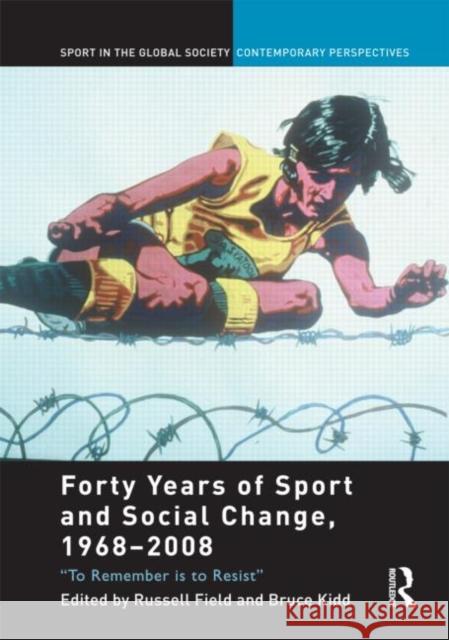Forty Years of Sport and Social Change, 1968-2008 : To Remember is to Resist » książka
Forty Years of Sport and Social Change, 1968-2008 : To Remember is to Resist
ISBN-13: 9780415488549 / Angielski / Twarda / 2010 / 194 str.
Forty Years of Sport and Social Change, 1968-2008 : To Remember is to Resist
ISBN-13: 9780415488549 / Angielski / Twarda / 2010 / 194 str.
(netto: 673,60 VAT: 5%)
Najniższa cena z 30 dni: 654,86
ok. 22 dni roboczych.
Darmowa dostawa!
This volume came out of a three-day conference on sports, human rights and social change hosted by the University of Toronto forty years after Mexico and eighty days before the Beijing Opening Ceremony. The contributions to this volume capture the memories of activists who were 'on the ground' using sport as a site for the struggle for human rights and provide scholarly examinations of past and current human rights movements in sport. This book was previously published as a special issue of Sport in Society.
1968 was a year of protest in civil society (Prague, Paris, Chicago) and a year of protest in sport. After a world-wide campaign, the anti-apartheid movement succeeded in barring South Africa from the Olympic Games, while US athletes from the Olympic Project for Human Rights used the medals podium to decry the racism of North America. Meanwhile, students in Mexico demonstrated against social priorities in Mexico, the host of the 1968 Games. These events contributed significantly to the rejection of the idea that sports are apolitical, and stimulated the scholarly study of sport across the social sciences.
Leading up to the Beijing Olympic Games, similar dynamics were played out across the globe, while a campaign was underway to boycott the âGenocide Olympicsâ. The volume, "To Remember is to Resist", came out of a three-day conference on sports, human rights and social change hosted by the University of Toronto forty years after Mexico and eighty days before the Beijing Opening Ceremony.
The contributions to this volume capture the memories of activists who were "on the ground" using sport as a site for the struggle for human rights and provide scholarly examinations of past and current human rights movements in sport.
This book was previously published as a special issue of Sport in Society.











